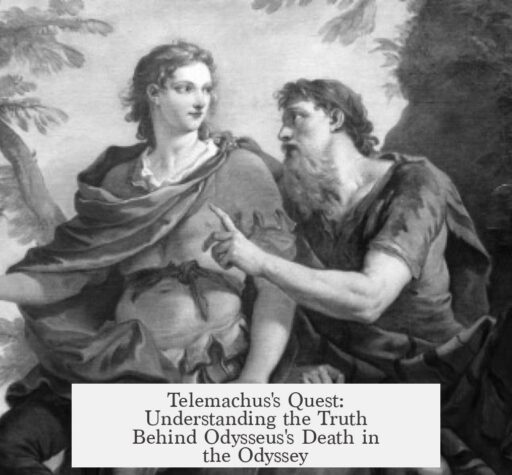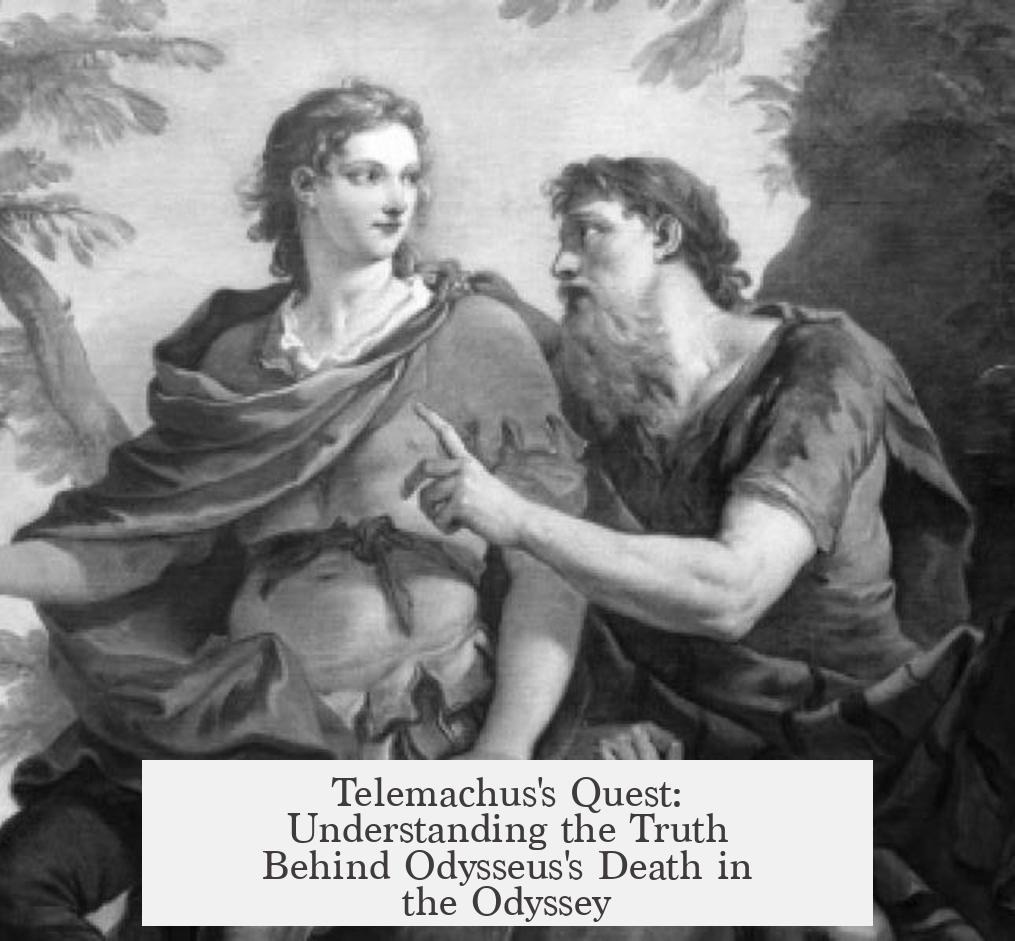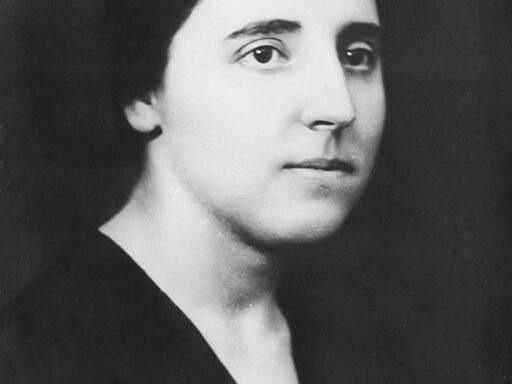Telemachus is deeply concerned with learning how his father, Odysseus, died because the uncertainty surrounding Odysseus’s fate directly affects his own identity, inheritance, and political standing on Ithaca. After a long absence of twenty years, during which Odysseus’s fate remains unknown, Telemachus faces a precarious position. His mother, Penelope, manages the household but remains caught in limbo, supported by suitors who pressure her to declare Odysseus dead and remarry. This situation clouds Telemachus’s claim to leadership and creates political instability.
Growing up without his father, Telemachus starts his journey as a young man uncertain about who he is without Odysseus. His concern is personal as well as practical. If Odysseus is dead, Telemachus must assume his role as rightful ruler of Ithaca. If Odysseus lives, Telemachus’s role remains secondary. This ambiguity impacts his ability to assert authority over the suitors who disrespect his family and threaten the stability of the kingdom.
Telemachus’s quest for news about Odysseus’s death—particularly the circumstances—represents his need for closure. It is not enough to suspect death; he wants certainty. This search is both symbolic and literal. On a symbolic level, knowing the manner of Odysseus’s death would shape Telemachus’s understanding of his own legacy. At the narrative level, this quest helps progress Telemachus’s character development from a passive youth to a young man taking steps toward maturity and leadership.
His search for information also serves a political function. The suitors aggressively court Penelope, hoping she will accept a new husband and thereby end the period of uncertainty about succession. They want to remove Telemachus from power indirectly. Confirmation of Odysseus’s death would force Penelope to remarry, dissolving Telemachus’s claim and empowering the suitors. Therefore, learning about Odysseus’s condition helps Telemachus strategize how to protect his inheritance and control over Ithaca.
Literarily, Telemachus’s inquiries about Odysseus’s death create dramatic irony. The audience already knows Odysseus is alive, while Telemachus and others do not. This gap in knowledge enhances tension and empathy. It places the audience in a position of privilege, deepening engagement with the unfolding story. It also provides an important vehicle for Homer to reveal Telemachus’s personality through dialogue and interactions as he grows into his role.
Throughout the epic, Telemachus’s desire to learn about his father’s death or survival intertwines with his own maturation. Events like his attempt to string Odysseus’s bow symbolize his gradual acquisition of his father’s heroic traits and readiness for leadership. Although he cannot yet fully match Odysseus, the challenge marks a critical stage in Telemachus’s development.
In the assembly he calls, Telemachus initially tries to assert authority opposing the suitors’ disrespect and the threat they pose to his family. His efforts illustrate his growing confidence and sense of responsibility, driven by both loyalty and a practical need to secure his position. Thus, the concern about Odysseus’s fate is not just familial but deeply tied into Ithaca’s political future and Telemachus’s personal evolution.
- Telemachus’s uncertainty about Odysseus’s fate affects his identity and inheritance.
- He needs confirmation of Odysseus’s death to assert his political authority on Ithaca.
- The suitors press Penelope to remarry, threatening Telemachus’s claim.
- The quest for information marks Telemachus’s coming of age and leadership growth.
- Telemachus’s inquiries create dramatic irony, engaging the audience.
- His loyalty and hope for Odysseus shape his journey and character development.




